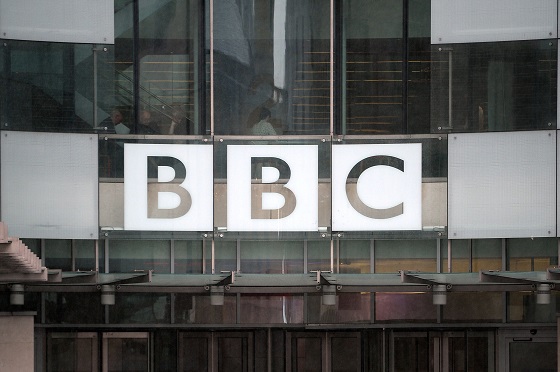Economy
Big Tech’s AI Dreams And Dems’ Electrification Push Are Keeping More Coal Online For Longer

 From the Daily Caller News Foundation
From the Daily Caller News Foundation
By Nick Pope
Power-hungry data centers and Democrats’ broad electrification agenda are teaming up to keep more coal-fired capacity online for longer than initially projected, according to The Wall Street Journal.
Tech companies’ data centers, policies pushing adoption of products like electric vehicles (EVs) and heat pumps and manufacturing activity are quickly driving up electricity demand projections, forcing some utility companies to keep coal-fired power plants operational for longer than anticipated, according to the WSJ. In 2023, S&P Global Commodity Insights projected that the U.S. would retire about 133,000 megawatts of remaining coal capacity by 2035, but the organization’s 2024 outlook now anticipates that roughly 105,000 megawatts of coal-fired generation will be retired by that year.
“Utilities around the country are kind of going into panic mode” because they are finding themselves unprepared for surging power demand, Michelle Solomon, a senior policy analyst at Energy Innovation, told the WSJ. Nearly every regional power market in the U.S. increased their projections for five-year annualized electricity demand growth between 2022 and 2023, with the rate doubling in some instances.
Coal-fired power plants are also benefiting from the fact that green energy generation is not coming online fast enough to replace retiring fossil fuel capacity, according to the WSJ. Coal is a dirtier fuel source than alternatives like natural gas, but the artificial intelligence (AI) boom and Democrats’ push for electrification — an effort intended to counter climate change —are prolonging its use.
“The existing fleet [of fossil-fuel generators] needs to stick around longer and run harder,” Patrick Finn, an analyst at the energy-focused consultancy Wood Mackenzie, told the WSJ. This dynamic will likely be a headwind for cutting emissions, which has been a top domestic and international priority for the Biden administration.
The Biden administration has pursued policies that will drive up long-term electricity demand while making it more difficult to build reliable, cheap fossil fuel-fired capacity.
On the demand side, the administration has pushed policies that will substantially increase the number of EVs on the road and issued regulations that often favor electric appliances, in addition to incentivizing power-intensive manufacturing while the AI boom takes shape. In terms of supply, the Biden Environmental Protection Agency (EPA) has moved to reshape the American power grid by effectively mandating the installation of costly carbon capture and sequestration (CCS) technology for coal plants, requiring that these plants control 90% of their emissions by 2032 if they are to operate past 2039, according to the Center for Strategic and International Studies.
Business
Liberal’s green spending putting Canada on a road to ruin

Once upon a time, Canadians were known for our prudence and good sense to such an extent that even our Liberal Party wore the mantle of fiscal responsibility.
Whatever else you might want to say about the party in the era of Jean Chrétien and Paul Martin, it recognized the country’s dire financial situation — back when The Wall Street Journal was referring to Canada as “an honorary member of the Third World” — as a national crisis.
And we (remember, I proudly served as Member of Parliament in that party for 18 years) made many hard decisions with an eye towards cutting spending, paying down the debt, and getting the country back on its feet.
Thankfully we succeeded.
Unfortunately, since then the party has been hijacked by a group of reckless leftwing fanatics — Justin Trudeau and his lackeys — who have spent the past several years feeding what we built into the woodchipper.
Mark Carney’s finally released budget is the perfect illustration of that.
The budget is a 400 page monument to deficit delusion that raises spending to $644.4 billion over five years — including $141.4 billion in new spending — while revenues limp to $583.3 billion, yielding a record (non-pandemic) $78.3 billion shortfall, an increase of 116% from last year.
This isn’t policy; it’s plunder. Interest payments alone devour $55.6 billion this year, projected to hit $76.1 billion by 2029-30 — more than the entire defence budget and rising faster than healthcare transfers.
We can’t discount the possibility that this will lead to a downgrade of our credit rating, which will significantly increase the cost of borrowing and of doing business more generally.
Numbers this big start to feel very abstract. But think of it this way: that is your money they’re spending. Ottawa’s wealth is made up entirely of our tax dollars. We’ve entrusted that money to them with the understanding that they will use it responsibly. In the decade these Liberals have been in power, they have betrayed that trust.
They’ve pursued policies which have made life in Canada increasingly unaffordable. For example, at the time of writing it takes 141 Canadian pennies (up from 139 a few days ago) to buy one U.S. dollar, in which all of our commodities are priced. Well, that’s .25 cents per litre of gasoline. Imagine what that’s going to do to the price of heating, of groceries, of the various other commodities which we consume.
And this budget demonstrates that the Carney era will be more of the same.
Of course, the Elbows Up crowd are saying the opposite — that this shows how fiscally responsible Mark Carney is, unlike his predecessor. (Never mind that they also publicly supported everything that Trudeau did when he was in government.) They claim that Carney shows that he’s more open to oil and gas than Trudeau was.
Don’t believe it.
The oil and gas sector does get a half-hearted nod in the budget with, for instance, a conditional pathway to repeal the emissions cap. But those conditions are important. Repeal is tied to the effectiveness of Carney’s beloved industrial carbon tax. If that newly super-charged carbon tax, which continues to make our lives more expensive, leads to government-set emissions reductions benchmarks being met, then Ottawa might — might — scrap the emissions.
Meanwhile, the budget doubles down on the Trudeau government’s methane emissions regulations. It merely loosens the provisions of the outrageous Bill C-59, an act which should have been scrapped in its entirety. And it leaves in place the Trudeaupian “green” super structure, which has resource sector investment, and any business that can manage it, fleeing to the U.S.
In these perilous times, with Canada teetering on the brink of recession, a responsible government would be cutting spending and getting out of the way of our most productive sectors, especially oil and gas — the backbone of our economy.
It would be repealing the BC tanker ban and Bill C-69, the “no more pipelines act,” so that our natural resources could better generate revenue on the international market and bring down energy rates at home.
It would quit wasting millions on Electric Vehicle charging stations; mandating that all Canadians buy EVs, even with their elevated cost; and pressuring automakers to manufacture Electric Vehicles, regardless of demand, and even as they keep closing up shop and heading south.
But in this budget the Liberals are going the opposite direction. Spend more. Tax more. Leave the basic Net-Zero framework in place. Rearrange the deck chairs on the Titanic.
They’re gambling tomorrow’s prosperity on yesterday’s green dogma, And every grocery run, every gas fill-up, every mortgage payment will serve as a daily reminder that we are the ones footing the bill.
Once upon a time, the Liberals knew better. We made the hard decisions and got the country back on its feet. Nowadays, not so much.
Business
Carney doubles down on NET ZERO

If you only listened to the mainstream media, you would think Justin Trudeau’s carbon tax is long gone. But the Liberal government’s latest budget actually doubled down on the industrial carbon tax.
While the consumer carbon tax may be paused, the industrial carbon tax punishes industry for “emitting” pollution. It’s only a matter of time before companies either pass the cost of the carbon tax to consumers or move to a country without a carbon tax.
Dan McTeague explains how Prime Minister Carney is doubling down on net zero scams.
-

 Health18 hours ago
Health18 hours agoLack of adequate health care pushing Canadians toward assisted suicide
-

 Alberta2 days ago
Alberta2 days agoFederal budget: It’s not easy being green
-

 Business2 days ago
Business2 days agoWill Paramount turn the tide of legacy media and entertainment?
-

 National11 hours ago
National11 hours agoWatchdog Demands Answers as MP Chris d’Entremont Crosses Floor
-

 Alberta10 hours ago
Alberta10 hours agoATA Collect $72 Million in Dues But Couldn’t Pay Striking Teachers a Dime
-

 Energy2 days ago
Energy2 days agoA picture is worth a thousand spreadsheets
-

 Energy1 day ago
Energy1 day agoIt should not take a crisis for Canada to develop the resources that make people and communities thrive.
-

 Dr John Campbell1 day ago
Dr John Campbell1 day agoCures for Cancer? A new study shows incredible results from cheap generic drug Fenbendazole











